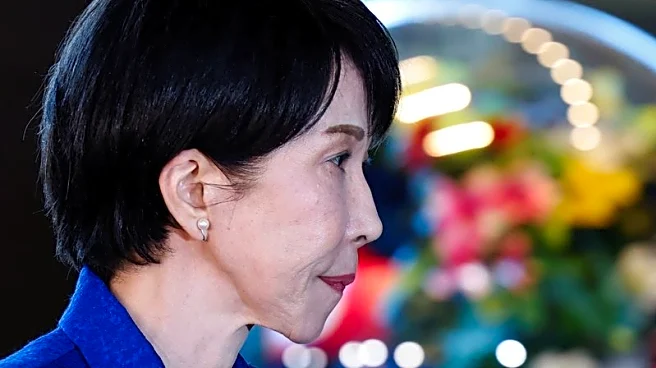Rapid Read • 8 min read
A federal judge in Miami heard arguments regarding the legal conditions of detainees at the 'Alligator Alcatraz' detention facility but did not issue an immediate ruling. The hearing focused on detainee access to attorneys, the assignment of an immigration court, and the appropriateness of the case's venue. The plaintiffs, including detainees and advocacy groups, argue that those held at the camp lack an assigned immigration court and face restricted access to legal counsel. The government has designated the Krome North Service Processing Center in Miami as the responsible immigration court. The ACLU claims that attorney access remains limited, while the government asserts that access is improving as infrastructure develops. The judge expressed concerns about the venue, noting the involvement of ICE officials within the court's district.
AD
The case highlights significant concerns about detainee rights and legal access within U.S. immigration detention facilities. The outcome could impact how detainees are treated and their ability to access legal representation, potentially setting precedents for other facilities. The controversy surrounding 'Alligator Alcatraz' underscores broader issues in immigration policy and enforcement, affecting hundreds of migrants and raising questions about constitutional rights. The case also involves coordination between state and federal authorities, which could influence future jurisdictional and operational decisions in immigration enforcement.
The judge must decide on the venue issue, which could affect the case's progression. If the venue is deemed improper, the case may be transferred, potentially delaying proceedings. The plaintiffs seek to ensure detainees' constitutional rights, including access to legal counsel and the ability to petition for release. The government may continue to improve infrastructure to address legal access concerns. Advocacy groups and legal experts will likely monitor developments closely, potentially influencing public policy and immigration reform discussions.
The case raises ethical and legal questions about the treatment of detainees and the balance between immigration enforcement and human rights. It may prompt broader discussions on the transparency and accountability of detention facilities. The controversy could lead to increased scrutiny of immigration policies and practices, influencing public opinion and legislative action. Long-term implications may include shifts in how detention facilities are managed and the prioritization of detainee rights in policy-making.
AD
More Stories You Might Enjoy












